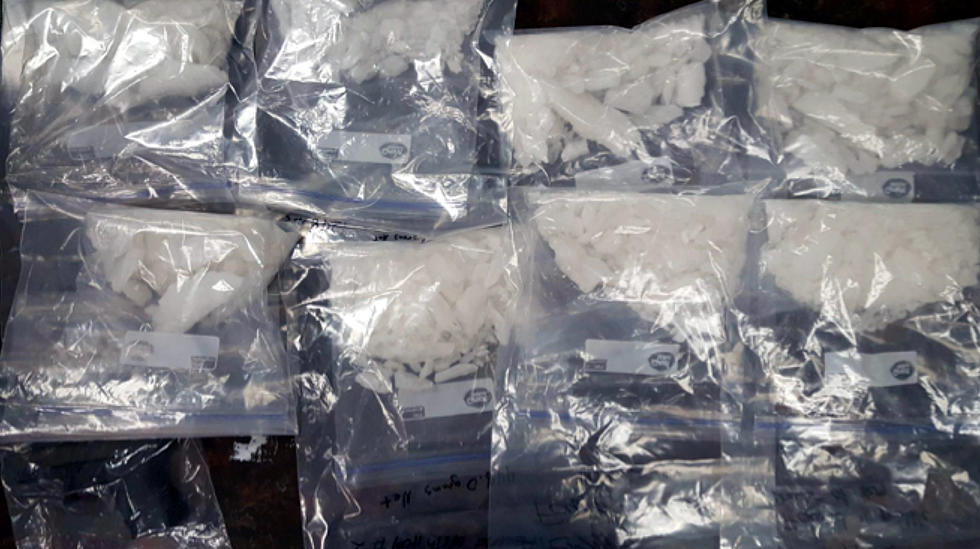
Drug agency sued over use of fake Facebook account
WASHINGTON (AP) -- The Drug Enforcement Administration set up a fake Facebook account using photographs and other personal information it took from the cellphone of a New York woman arrested in a cocaine case, to trick her friends and associates into revealing incriminating drug secrets.
The Justice Department initially defended the practice in court filings but now says it is reviewing whether the Facebook guise went too far.
Sondra Arquiett's Facebook account looked as real as any other. It included photos of her posing on the hood of a sleek BMW and a close-up with her young son and niece. She even appeared to write that she missed her boyfriend, who was identified by his nickname.
But it wasn't her. The account was the work of DEA Agent Timothy Sinnigen, Arquiett said in a federal court lawsuit. The case is scheduled for trial next week in Albany, New York.
Justice Department spokesman Brian Fallon said in a statement Tuesday that officials were reviewing both the incident and the practice, although in court papers filed earlier in the case the government defended it. Fallon declined to comment further because the case was pending.
Arquiett is asking for $250,000.
Details of the case were first reported by the online news site BuzzFeed News.
Arquiett was arrested in July 2010 on charges of possession with intent to distribute cocaine. She was accused of being part of a drug distribution ring run by her boyfriend, who had been previously indicted. She could have faced up to life in prison.
Court records show that in February 2011 Arquiett pleaded guilty to a charge of conspiracy to possess with intent to distribute and to distribute cocaine base. She was sentenced in January 2012 to time served, five years of probation, six months of weekend incarceration and six months of home confinement.
In the plea agreement Arquiett, who also was identified by the last names Prince and Arquiette, acknowledged that from 2008 to 2010 she was part of a drug conspiracy in Watertown, New York. At various times in 2009 other members of the conspiracy cooked cocaine into crack cocaine in her apartment in her presence, according to court files. The records also show she participated in jailhouse telephone calls with co-conspirators and at times made three-way telephone calls connecting jailed co-conspirators with others.
The court records do not show whether Arquiett agreed to testify against any other members of the conspiracy.
In a court filing in August, the Justice Department contended that while Arquiett didn't directly authorize Sinnigen to create the fake account, she "implicitly consented by granting access to the information stored in her cellphone and by consenting to the use of that information to aid in ... ongoing criminal investigations."
The government also contended that the Facebook account was not public. A reporter was able to access it early Tuesday, though it was later disabled.
A spokesman for Facebook declined Tuesday to comment on the legal dispute. Facebook's own policies appear to prohibit the practice, telling users that "You will not provide any false personal information on Facebook, or create an account for anyone other than yourself without permission."
Donald Kinsella, one of Arquiett's lawyers, declined to comment on the case. Arquiett did not respond to an emailed request for comment.
Arquiett said in her filing that she suffered "fear and great emotional distress" and was endangered because the fake page gave the impression that she was cooperating with Sinnigen's investigation as he interacted online with "dangerous individuals he was investigating."
The fate of Arquiett's fight against the government's use of her identity online is unclear.
A staff attorney at the Electronic Frontier Foundation - a civil liberties organization - Nate Cardozo, said the government's rationale was "laughable."
"If I'm cooperating with law enforcement, and law enforcement says, `Can I search your phone?' and I hand it over to them, my expectation is that they will search the phone for evidence of a crime," Cardozo said, "not that they will take things that are not evidence off my phone and use it in another context."
More From New Jersey 101.5 FM









